Ecommerce or quick commerce is one of the early adopters of electric vehicles
According to industry reports, 15-20% of last-mile ecommerce cargo fleets have been electrified globally
Let’s look at a few key considerations that must be made when determining whether the switch to EVs is feasible
Businesses with an average daily vehicle utilisation of 100 km per day have begun to turn to green logistics solutions for long-term economic and environmental sustainability.
Ecommerce or quick commerce is one of the early adopters of electric vehicles. According to industry reports, 15-20% of last-mile ecommerce cargo fleets have been electrified globally, either through retrofitted solutions, the replacement of ICE vehicles with EVs, or the introduction of EVs. With proactive government policies, India is rapidly progressing toward commercial EV usage.
However, transitioning to EVs requires considerable thought and planning. We learned early on as an early entrant into the EV market as an OEM that the entire EV ecosystem is still learning how to deploy, operate, and service EVs. The following crucial factors must be taken into account in a decision-support framework for EV viability:
Distribution Demand Forecasting & Route Planning
It’s a common myth that logistics operators need to build routes around the availability of charging stations. On the other hand, EVs can be deployed on several routes that do not depend on public charging infrastructure. It is necessary to have a clear and thorough understanding of the route profiles by carefully analysing the capabilities of EVs.
For instance, we discovered that EVs can efficiently run up to 50% of most customers’ routes without requiring mid-route charging for ecommerce furniture deliveries in urban areas. With increased ecommerce usage, most logistics players’ delivery routes are becoming shorter.
Efficiency Comparison Across Various Usage Scenarios
Vehicle needs of typical logistics operators consist of first-mile, mid-mile, and last-mile vehicles. EVs can currently be deployed efficiently for relatively low payload first- and last-mile applications. However, as the technology matures, EVs will make inroads into mid-mile and inter-city logistics.
Published On: November 6, 2022






